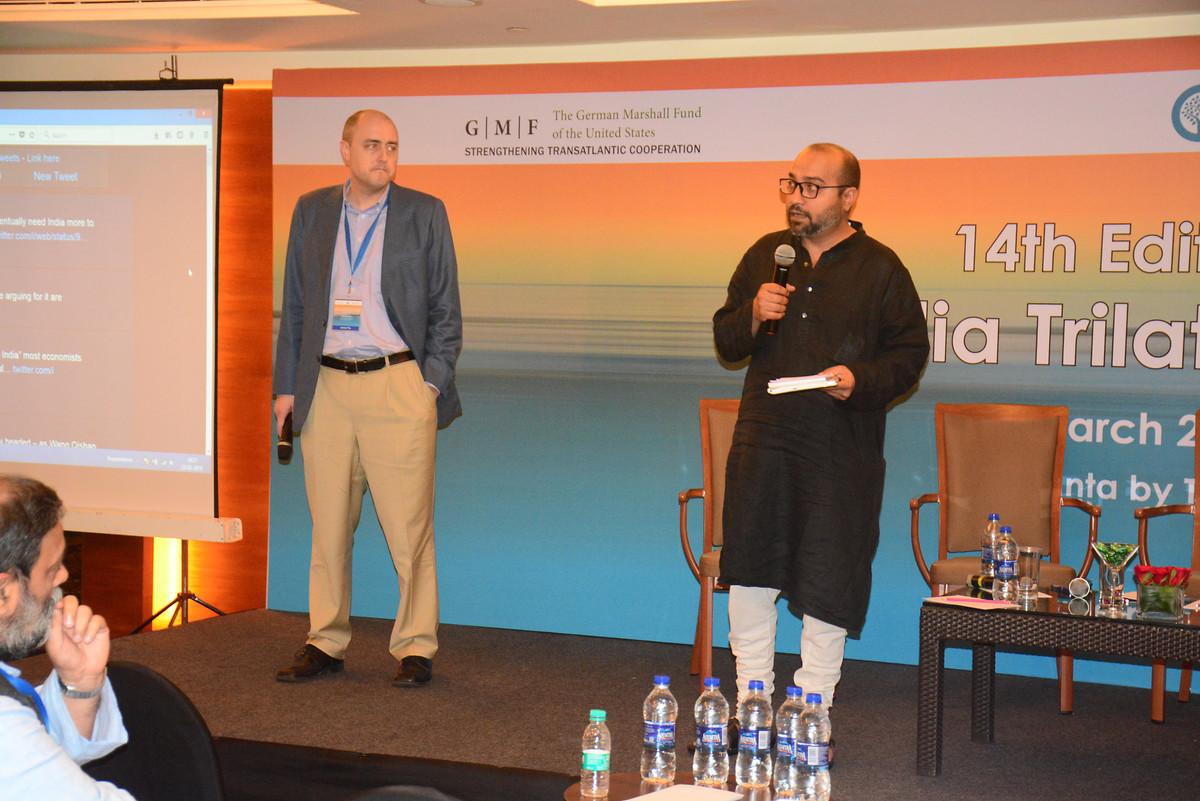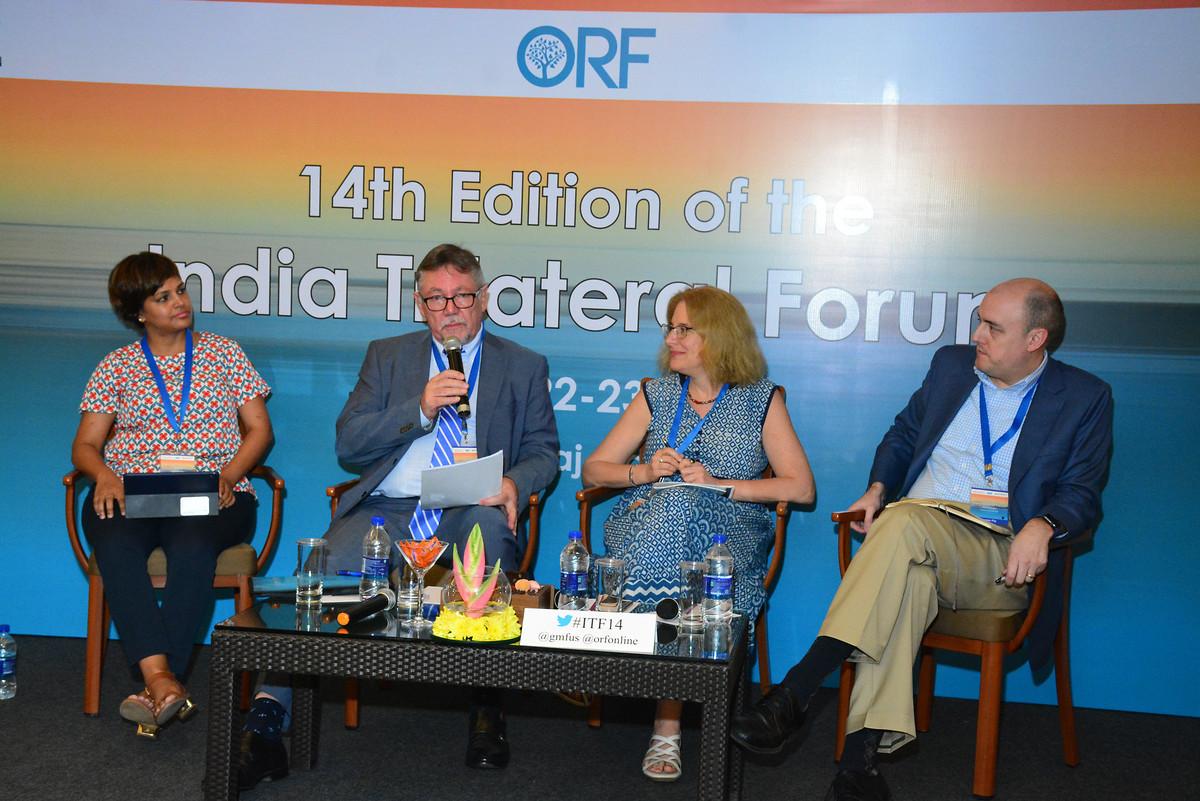Event reports
The India Trilateral Forum is the leading dialogue between Americans, Europeans, and Indians involved in influencing, crafting, and implementing national and foreign policies. The Forum convenes government officials, intellectuals, media commentators and business representatives from all three communities biannually for an intimate conversation on shared political, social, and economic objectives as well as the implications of India’s rise for the transatlantic community.
Peter Rimmele discussed, in the panel “Democracies under Threat? Radicalization, Populism, and Disinformation”, the latest developments in Europe. In the light of current events, such as the re-election of Viktor Orban in Hungary or the success of right-wing populist parties in the local elections in the Netherlands, shows the concurrent relevance of the topic. Rupa Subramanya, economist from Mumbai, spoke about these phenomena in India and Jamie Fly, Director of the Asia Program and Future of Geopolitics at GMFUS, gave his thoughts about the populist wave in the US and foreign interference.
Mr. Rimmele explained in his contribution that radicalization, populism and disinformation are not new phenomena and that, for example, they were already noticeable in the political conflicts during the Weimar Republic in Germany.
It is especially interesting, why in recent years, people have been so open to populism in Europe's consolidated democracies, stated Mr. Rimmele. Globalization, especially the negative side, is becoming more and more tangible for the people, which is reflected in the economic and financial crisis of 2008/2009 or the refugee crisis in the year 2015. This led to insecurity and anxiety as well as rejection of the current developments by some parts of society in Europe. In addition, the differentiation of lifestyles and increasing individualization combined with rising immigration would lead to the feeling of a section of the society that their culture and identity is under threat. Digitization has also led to the spread of fake news and conspiracy theories and the media is losing its status as the sole provider of information, which is why some media are increasingly breaking taboos for their own survival. Especially in Germany, there is also an aging society which perceives changes more and more as an imposition. These emotions are the life elixir for populist movements and they fuel these fears with anti-elitist and anti-pluralist slogans.
Mr. Rimmele explained that the real threat to democracy comes from the fact that populist movements would reject the values of democracy. Populists would often claim that they represent the so-called will of the people, in contrast to the "corrupt" elites. They reject compromises and are convinced they own the truth. Democracy, on the other hand, always means finding a compromise between different opinions.
This discrediting of the political elites also leads to a growing polarization within society, which can also lead to a radicalization. In addition, populist parties and movements are often not democratically structured and their success is bound to a charismatic leader. And even the methods of populists are not based on democratic values. According to this, false news and lies are often used instead of rational arguments. How dangerous can this be for democracies can be seen in cases where populist politicians come to power. For example, Erdogan in Turkey tend to discredit all institutions that do not agree with his opinion. This is mainly because leaders like him have no control over them. The result is an increasing erosion of the separation of powers.
Additionally, the participants discussed in the several panels India's Role in the World, Challenges and Opportunities of an Engagement in the Indo-Pacific, China as a normative power and the Social Aspect of the World Order.







